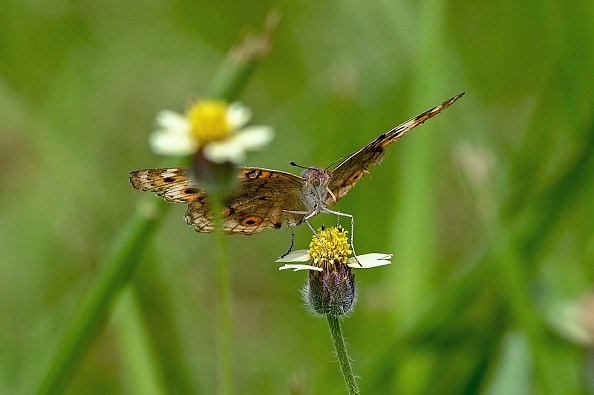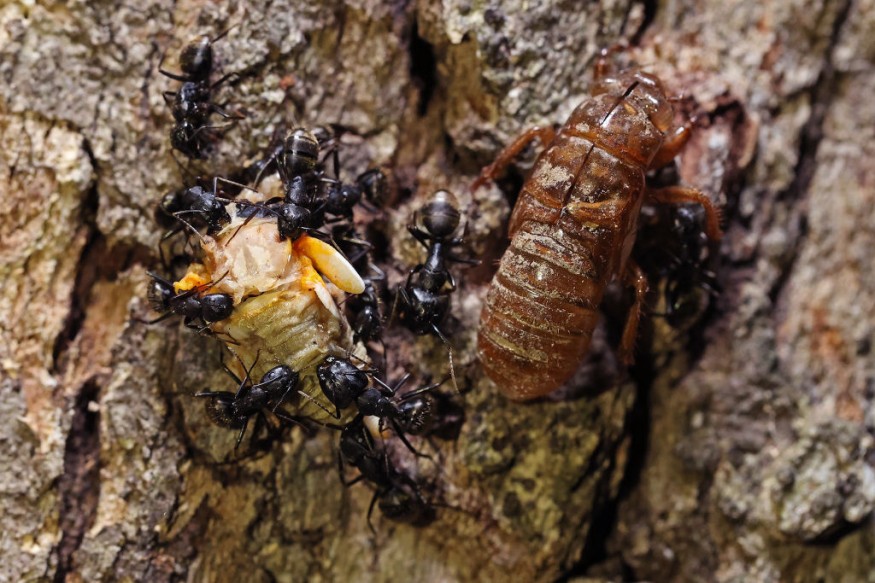According to a survey that tallied splats on automobile registration plates, the number of flying insects in the UK has decreased by about 60% since 2004. The reduction was "terrifying," according to the researchers, because insects are essential for life on Earth.

The findings from tens of thousands of public rides in the summer of 2021 were compared to those from 2004. The fall was greatest in England, with a 65 percent reduction, followed by Wales with a 55 percent reduction and Scotland with a 28 percent reduction.
Big Surveys
With just two big surveys thus far, the researchers noted that it was likely that those years were particularly excellent or terrible for insects, potentially skewing the results, and that it was critical to repeat the analysis every year to establish a long-term pattern. However, the new findings are in line with past studies of insect reduction, such as an annual vehicle windscreen survey in rural Denmark that reported an 80% decrease in abundance from 1997 to 2017.
Bugs Matter App

In the British study, participants downloaded the Bugs Matter app, which allowed them to track their travels and the number of bugs smashed on their license plates. From June through August, the next survey will be conducted.
"This crucial study reveals that the number of flying insects is dropping by an average of 34% every decade - this is scary," said Matt Shardlow of Buglife, which surveyed in collaboration with Kent Wildlife Trust (KWT). "We can no longer put off action; for future generations' health and well-being, a political and societal reaction is required." Stopping the loss of biodiversity today is critical."
"The results should shock and alarm us all," KWT's Paul Hadaway remarked. Insect decreases are seen, representing the significant challenges and losses of biodiversity across the country. We must act immediately to protect all of our species by developing more and larger habitat areas, providing wildlife corridors throughout the terrain, and enabling nature to heal."
Why are Insects Important?
Insects play an important role in environmental health through recycling organic materials, pollination, and pest control. However, experts behind a recent collection of research found that the world is experiencing a "terrifying" worldwide decline that is "tearing apart the fabric of life." In 2019, a global scientific assessment warned that widespread decreases posed a "catastrophic breakdown of nature's ecosystems."
The new study looked at over 5,000 journeys in 2021 and calculated their "splat rate," or the number of insects observed per mile. Rainy days were omitted since some splatted insects could have washed off the plates.
Only 8% of journeys failed to splat any insects at all, according to a 2004 survey performed by the RSPB. However, in 2021, just 40% of journeys recorded a single squashed bug. The statistics ruled out that newer automobiles were more aerodynamic and hence impacted fewer insects.
The data acquired by the poll could not explain why the reduction in Scotland was so much smaller. However, Shardlow said that issues known to affect insects, such as habitat fragmentation, climate change, pesticides, and light pollution, were less severe in Scotland.
What We Can Do
Buglife added that individuals might help insects by avoiding pesticides, allowing grass to grow longer, spreading wildflowers in gardens, and demanding action from the government and municipalities. According to the organization, if every garden included a little patch for insects, it would be the world's largest area of animal habitat.
For similar news, don't forget to follow Nature World News!
© 2025 NatureWorldNews.com All rights reserved. Do not reproduce without permission.





